If you are highly sensitive, intelligent, and unusually perceptive, chances are you probably have (or have had) existential depression.
Depression is a topic that is frequently written about. We hear remedies, theories, and stories all the time. But few people have heard of existential depression – hence why those who suffer from it can feel tremendously alienated and under-represented.
There are numerous types of depression, and they can be categorized in the following way:
- Situational Depression — or caused by external events such as a death, tragedy, loss of employment, etc.
- Hormonal Depression — caused by an internal imbalance of chemicals.
- Biological Depression — triggered by genetics.
- Seasonal Depression — caused by the changing of seasons (as seen in seasonal affective disorder).
- Intrapersonal Depression — caused by toxic beliefs and perceptions that lead to low self-worth.
- Existential Depression — caused by a lack of meaning and Soul connection.
In this article, we’ll only be exploring existential depression and how to handle it. Seeing as it’s such an unusual form of depression that doesn’t respond well to normal treatment, my goal is to help you compassionately face it. As someone who has experienced existential depression before, I want you to know that it does fade and go away – there is hope.
Looking to know about how you can deal with depression? Read 7 Important Things To Remember When You Feel Depressed
What is Existential Depression?
In a nutshell, existential depression is a type of spiritual emergency. It is crippling, profound, pervasive, and highly personal in nature. Most people who experience existential depression feel numb, lost, and empty inside.
These people tend to be philosophical deep thinkers and feelers who want to understand the meaning of life. Clinically, existential depression falls into a “grey” area as it is often classified as “uncaused,” although it can sometimes be triggered by internal or external crises.
15 Signs You Have Existential Depression
Signs of existential depression include:
Continuous “deep thoughts” about the meaning and nature of life.
Intense desire to answer seemingly unanswerable questions such as, “What is the purpose of existence?” “What happens after death?” and “Why was I born?”.
Intense dissatisfaction with the state of society.
Feeling disconnected from others (thus few or no friends).
Feeling misunderstood and on a “different level” to others.
Chronic and profound loneliness.
Sensations of being “dead,” “numb,” or empty inside.
Disinterest in social contact because it feels shallow.
Melancholic moods.
Anxiety.
Loss of interest in usual pursuits.
Lack of enthusiasm or motivation.
Low energy and chronic fatigue.
The belief that most things are “futile” or “meaningless”.
Contemplation or attempt of suicide.
How many of these signs can you relate to?
Why Existential Depression Can’t Be Healed With ‘Usual’ Methods
If you’re suffering from existential depression you’ve probably been taken to or sought out, psychotherapy already. Chances are that it didn’t work for you, and no matter how much medication, counseling, or analysis you underwent, your feelings never left. If this is the case, you probably feel even more hopeless and alone than before.
But the true failure lies not with you, but in the psychotherapeutic profession and its blind treatment of all depression as “one and the same.” Writes one author:
The danger with depression in the gifted adult is that to 99% of the psychological profession “depression is depression is depression.” Thus someone who presents with “depression” is drugged and treated for “depression.” Sorry! Wrong! But thank you for playing.
What Causes Existential Depression?
So then, if existential depression is not like usual depression, what is the source of it?
As I mentioned previously, the clinical understanding of existential depression is that of a vague and uncaused mental illness. (In other words, it isn’t external, biological, seasonal, hormonal, or to do with self-esteem.) But this is an extremely superficial definition and one that is based on the limited insight of the psychotherapy profession.
As someone who has personally struggled with existential depression in the past, and counseled countless others with the same issue, I can say confidently that existential depression is a crisis of the soul. That is why I have written about it in the past being connected to something known as “the Dark Night of the Soul.”
If you don’t know what the Dark Night of the Soul is, it’s a period in life when we awaken to the deep disconnection we have with our souls.
Soul Loss as the Root Cause
Our souls are the deepest sources of our creativity, hope, joy, love, bliss, compassion, energy, and passion.
When we lose touch with our souls, we lose touch with our deepest essence or divinity. And when we lose touch with our essence, we feel lost, alone and empty. This is what is known as “soul loss” and THIS is the very cause of existential depression.
So here we have three experiences that are all interconnected:
- Existential depression is caused by Soul Loss
- Soul Loss is what causes the Dark Night of the Soul
The Dark Night of the Soul was originally written about by the 16th-century mystic St. John of the Cross. He described it as a period in life where the soul yearns to reconnect with God (or Spirit). Although the Dark Night of the Soul is a painful and tormenting experience at first, it is actually a cause for celebration. I know this sounds crazy … but you are finally waking up! For many people, the Dark Night marks the beginning of the sacred journey back to Wholeness or spiritual Oneness.
Want to know more about soul loss? Read 20 Signs You’re Experiencing Soul Loss
So how do we experience soul loss in the first place?
Soul loss, and our subsequent existential depression, happens for a number of reasons. Reasons can include, for example:
- High sensitivity (HSP)
- High intelligence (emotional and intellectual)
- Contemplative personality type
- Soulful maturity6
- Tragedy or hardship
- Poor self-awareness
- Self-abuse
- Soulless living (e.g. being raised with thin values, working in a trivial job, making choices that aren’t aligned with the soul, destructive societal influence, etc.)
Think back to when you first started experiencing existential depression. Did some big, traumatic, or otherwise disruptive experience come before it?
Usually, you can trace back to something definite that triggered it (although don’t worry if you can’t, it might be mentally repressed).
Existential Depression, Sensitivity, and Giftedness
Without fail, I have always found that existential depression is the product of being a sensitive person. After all, sensitivity allows us to feel what other people usually can’t feel. This is usually why existential depression sufferers feel so isolated and misunderstood: they really are on another plane of existence from the typical population.
At heart, the existential depression sufferer is always some form of “gifted” individual — a poet, artist, philosopher, healer, mystic, or sage in the making. Because such people find very few places to call “home” in our current society, it’s no wonder that they naturally feel misplaced, alone, and consumed by irrelevance.
8 Ways to Overcome Existential Depression
Recovering from existential depression can be immediate (in rare circumstances), but it is usually a gradual process.
I want to share with you what I have discovered that helps speed up this process:
1. Give your pain a higher meaning/purpose.
Give your pain a meaning. Learn to see your unhappiness and meaninglessness in a different light. This is where being introduced to the “Dark Night of the Soul” helped me out immensely: I realized it was a journey, not just an endless pit of suffering. Yes, when you start out it sucks. But eventually, you start finding your path again with time and patience.
Want to know more about the “Dark Night of the Soul”? Read The Dark Night Of The Soul: 7 Omens That Signal Its Arrival
2. Realize that the mind is limited.
Certainly, it is natural for us to want all the answers in life. But this is what I found: the more answers you get, the more questions you ask. The mind is an endless cycle, an endless labyrinth of questions, thoughts, and more questions.
But here’s the thing: the mind is not all there is to life. Don’t fall into the trap of making the mind and the intellectual pursuit of answers your God. The mind is only one layer of existence, and it can actually PREVENT you from living.
As author Søren Kierkegaard once wrote, “Life is not a problem to be solved, but a reality to be experienced.”
You might like to read more about this topic in my article, “What is the Point of Living?”
3. Stop, pause, be still, and know peace.
If you have ever read into the works of enlightened people you will discover one major message: peace can be found in every moment. And this isn’t some airy-fairy promise, it is a reality that you can experience first-hand. But it requires patience, stillness, and dedication.
Meditation is one of the best ways to experience this deep, eternal, abiding peace. Make sure you dedicate at least 10 minutes in the morning to meditation — try to increase it to 30 minutes or even 1 hour eventually. There are thousands of articles and many studies out there that have focused on the miraculous benefits of meditation. Read into them, watch YouTube videos to find different techniques, and find your niche.
4. What fills your soul with fire?
If you are unable to answer this question, think back to childhood … what did you love doing? If you still aren’t sure, explore different fields and topics of interest. Find what your passion is, or what makes you feel excited, fulfilled, energized, and engaged.
5. Nurture yourself.
Only you truly know what you need and want from life. Therefore, only you have the answers and love you need. Be kind to yourself and show self-love.
Release old patterns, thoughts, beliefs, situations, and people that don’t support your well-being.
6. Connect with others/life.
Getting a pet (or becoming closer to your existing one) is a great place to start. Dogs, in particular, give us unconditional love and help us to get out of the dark void that is existential depression. Also, try connecting with nature. Go outside with a relaxing cup of tea, watch the sky, the birds, the trees, the rain, and the sunshine. Nature can be very soothing – in fact, if you live near a forest, try and go forest bathing (the Japanese practice of using nature to calm the nervous system).
Gradually, you can build up to reaching out to a therapist that will genuinely understand where you’re coming from. Try seeking out a spiritual therapist or one that works with sufferers of the ‘spiritual emergence’ (try a Google search). Also, try simply searching for ‘existential depression therapists/counselors.’ There are many therapists worldwide that do online Skype sessions if you can’t find one in your local area.
7. Explore Soul Retrieval.
Soul Retrieval is a shamanic and psycho-spiritual tool for reintegrating lost parts of your psyche and rediscovering more inner Wholeness.
There are numerous forms of Soul Retrieval out there such as mirror work, internal family systems therapy, guided visualization, breathwork, and more.
I recommend reading our Soul Retrieval article for more guidance.
Looking to know more about soul retrieval? Read Soul Retrieval: 3 Powerful Ways to Heal Soul Loss
8. Take responsibility for your happiness.
No progress or authentic change in life can be made without taking self-responsibility. Life is multi-faceted. Yes, there is darkness, but there is also light. Yes, there is depression, but there is also joy. Learn to honor both sides and find them within everyday life, and you will experience more wholeness and inner balance. Yes, it’s important to acknowledge deep and serious existential issues, but it’s also important to acknowledge and respect life’s beauty. Above all, understand that we are so much more than the limited ego that feels small and separate. We all possess something mysterious and powerful within us. Call it the Life Force, call it Spirit, call it the Higher Self, but it’s beyond the mind. Exploring spirituality will help you to un
derstand and experience this for yourself.
***
I truly hope this examination of existential depression has helped open some new doors for you. I would love to hear your experience with this topic or any advice below. You could help a lot of struggling people out there.
Finally, if you are contemplating suicide, please seek immediate help here. Your life is a precious gift and one that can be salvaged, transformed, and healed if you allow it to.
Written by Aletheia Luna
This article has been republished from Loner Wolf.com, click here to view the original copy.
Existential depression is something not a lot of people know about, but that doesn’t make it any less tough or painful to deal with. Don’t be too hard on yourself, and treat yourself with love and patience, and you will see that it’s easier to beat this.
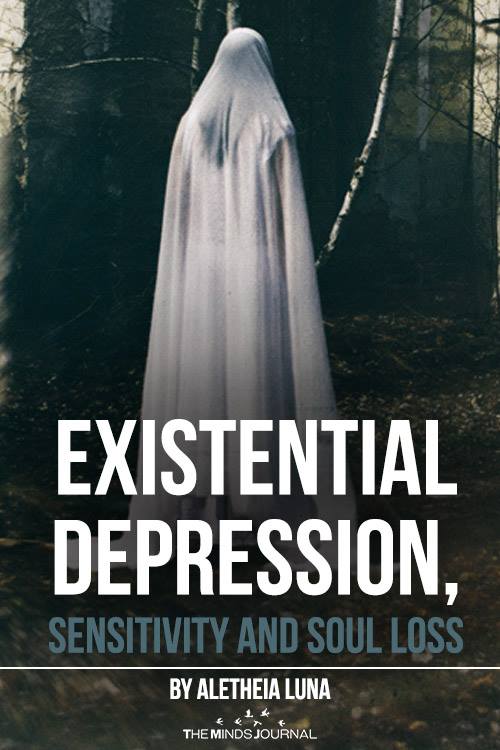


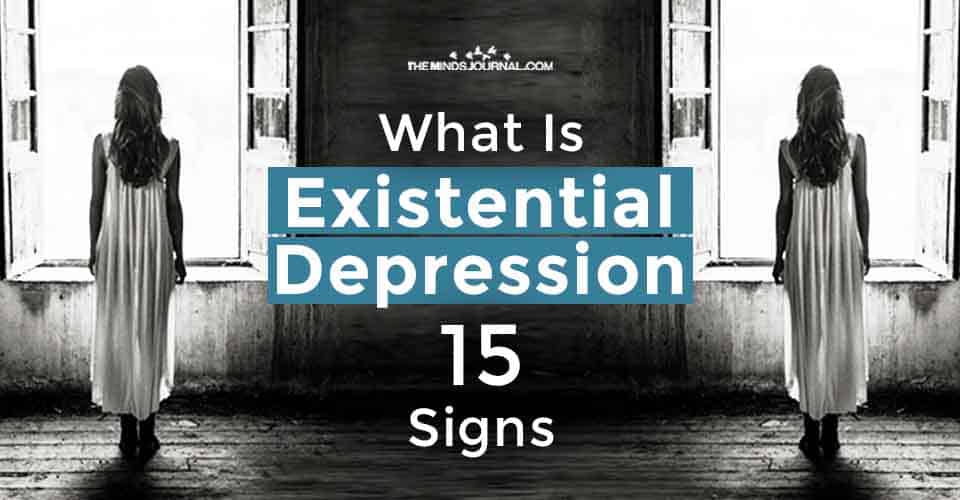
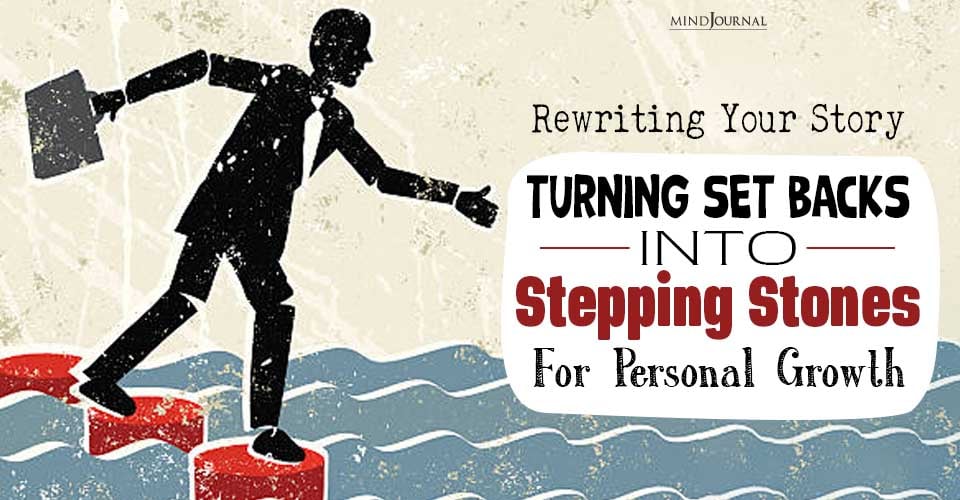
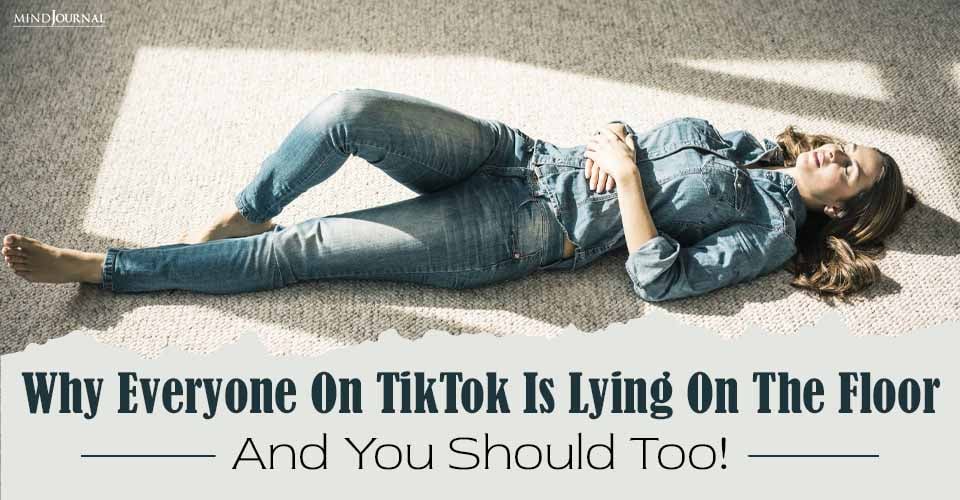
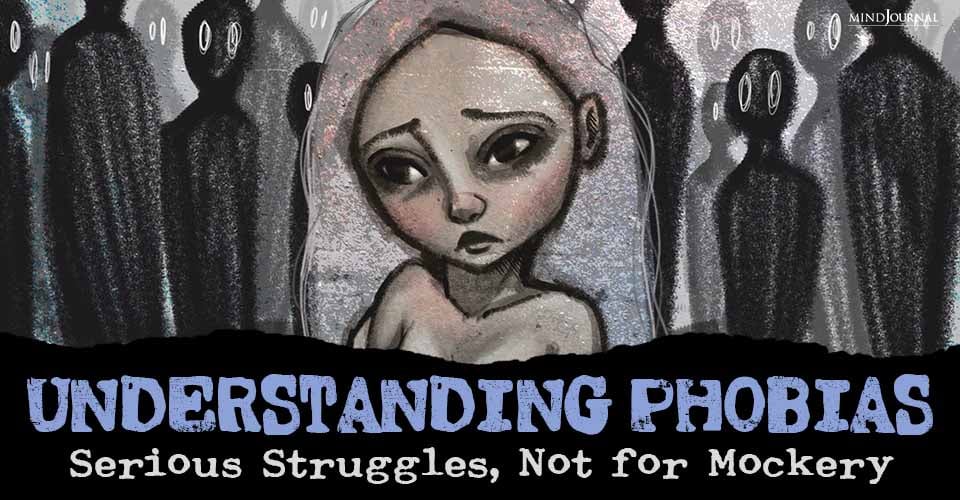
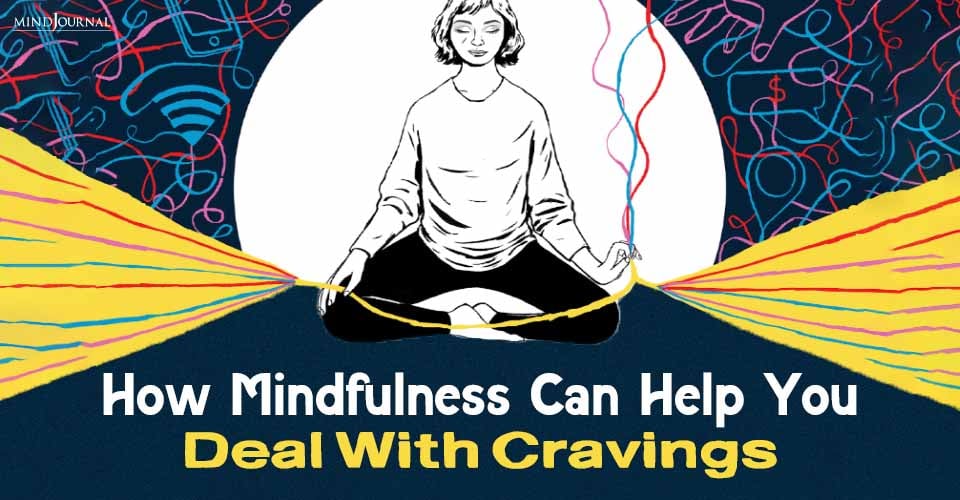

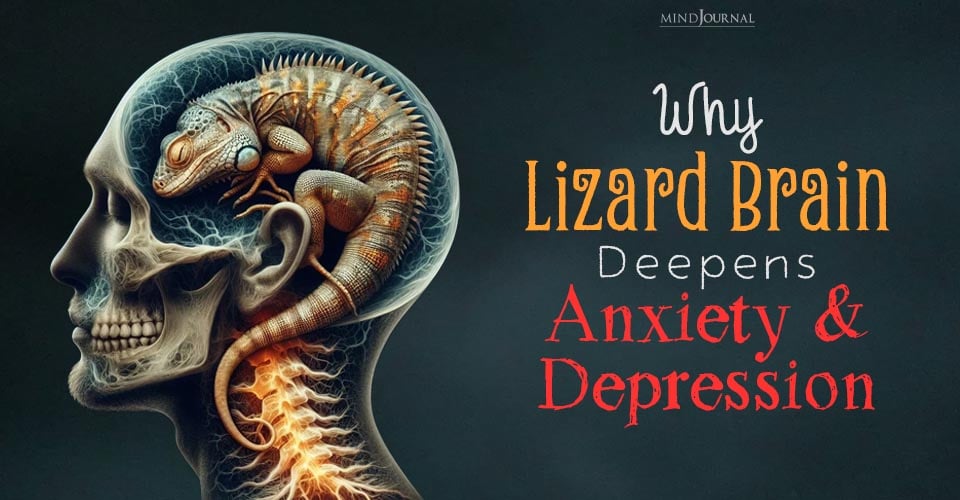
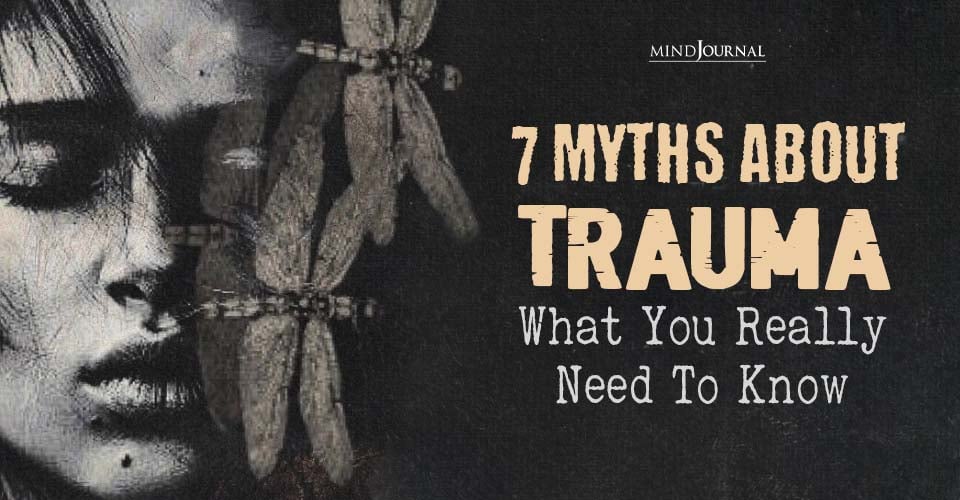
Leave a Reply